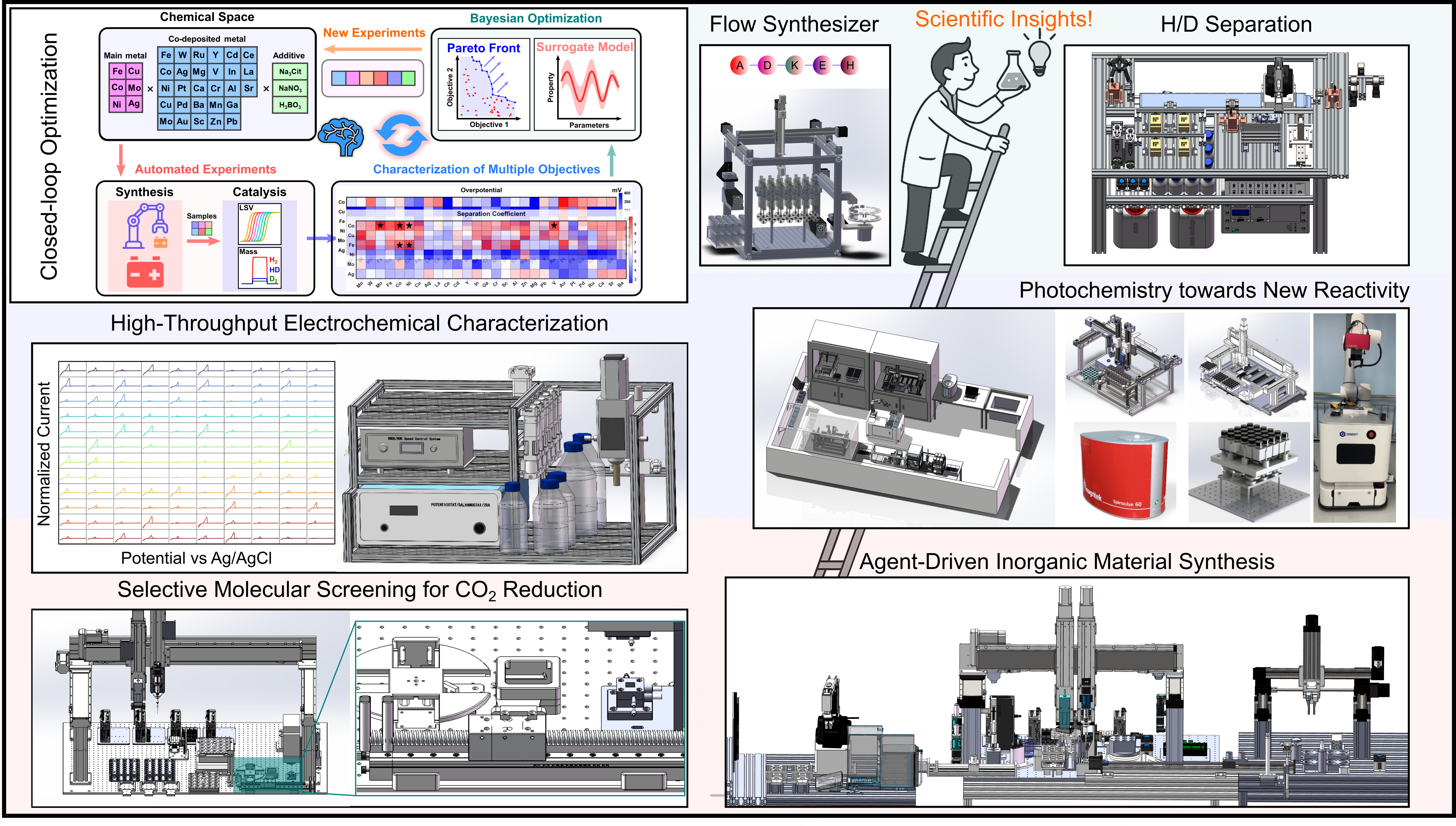Our research leverages cutting-edge data science, automation, and machine learning to tackle some of the most complex challenges in catalysis. By combining artificial intelligence with catalytic science, we are driving innovation in processes that are vital to environmental sustainability and energy conversion.
A central focus of our work is the discovery and optimization of electrocatalysts for applications such as carbon dioxide reduction reaction (CO₂RR), hydrogen/deuterium (H/D) separation, and the enhancement of photocatalytic systems through the strategic use of polypeptides as additives. Through the integration of predictive modeling, autonomous experimentation, and advanced data analytics, we aim to accelerate the development of efficient and cost-effective catalytic materials that push the boundaries of chemical performance.
Expanding beyond catalysis, our efforts are part of a larger movement toward digital chemistry—a new paradigm that unites computation, automation, and artificial intelligence to revolutionize how chemical research is performed. By developing closed-loop experimental workflows, intelligent data infrastructures, and digital tools within the model context protocol (MCP), we enable real-time feedback between prediction and experimentation. This includes the development of custom tools for data management, model deployment, and automated experiment control, ensuring seamless integration across computational and laboratory environments.
Through the fusion of digital technologies, tool development, and chemical science, we aspire to redefine the way materials and molecules are designed—bridging the gap between data and discovery, and paving the way for a cleaner, smarter, and more sustainable future.
